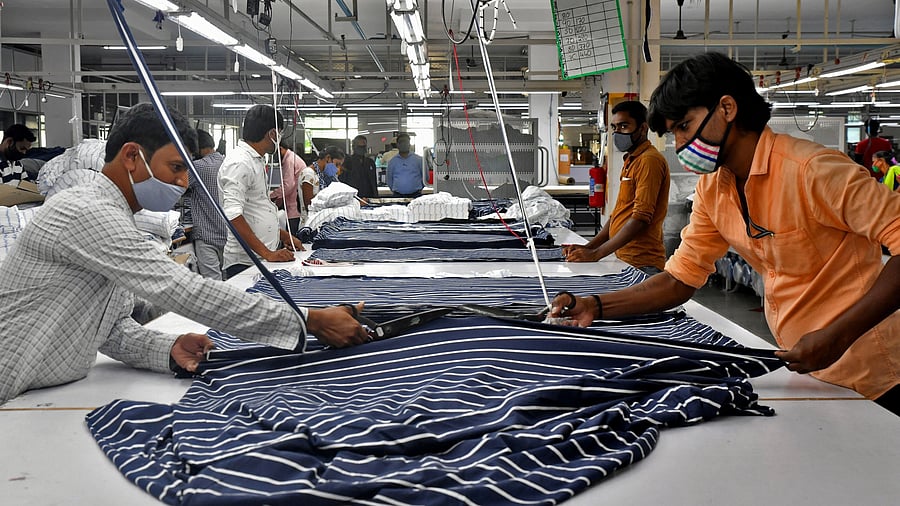
File photo for representational purpose.
Credit: Reuters File Photo
New Delhi: The National Technical Textiles Mission (NTTM), an initiative by the Ministry of Textiles has successfully supported the development of three indigenous instruments for testing Convective, Radiant, and Contact (Conductive) Heat Resistance of protective textiles.
The innovative project developed by the Northern India Textile Research Association (NITRA), marks a key step towards building self-reliant testing capabilities in the Indian technical textile sector, said a statement from the Textile Ministry.
The NTTM-sponsored project titled “Indigenously Developed State of the Art Instruments to Test Convective, Radiant, and Conductive Properties of Protective Textiles” has resulted in the creation of three precision systems the Convective Heat Tester (ISO 9151), Radiant Heat Tester (ISO 6942), and Contact (Conductive) Heat Tester (IS 12127).
"These instruments enable evaluation of thermal resistance properties in materials used for firefighter suits, industrial protective clothing, and defence applications, where heat protection is critical," the statement said.
"Developed entirely using indigenous design and technology, these instruments offer performance comparable to imported counterparts while being significantly more affordable, priced between ₹5–10 lakh compared to ₹15–40 lakh for imported models" the statement said.
The reduction in cost and lead time is expected to expand access to high-quality testing across a wider range of industries and institutions.
The technology has been successfully transferred to M/s Asian Test Equipment Pvt. Ltd., Ghaziabad for commercialization, in line with the Government’s Make in India initiative. The instruments have already been installed and validated at M/s Ace Incorporation, Kanpur, and at the Centre for Fire, Explosive and Environment Safety (CFEES), DRDO, Delhi, and are now commercially available online platforms.
With indigenous availability, testing duration has reduced from about 30 days to 3–5 days, and testing costs have fallen from ₹25,000–₹40,000 per sample to ₹6,000–₹10,000, greatly improving ease of access for Indian manufacturers and R&D organizations.
"The successful completion of this project, funded by NTTM, represents a meaningful contribution towards strengthening India’s infrastructure in technical textiles and aligns with the national vision of promoting innovation, sustainability, and self-reliance in the sector" the statement said.
